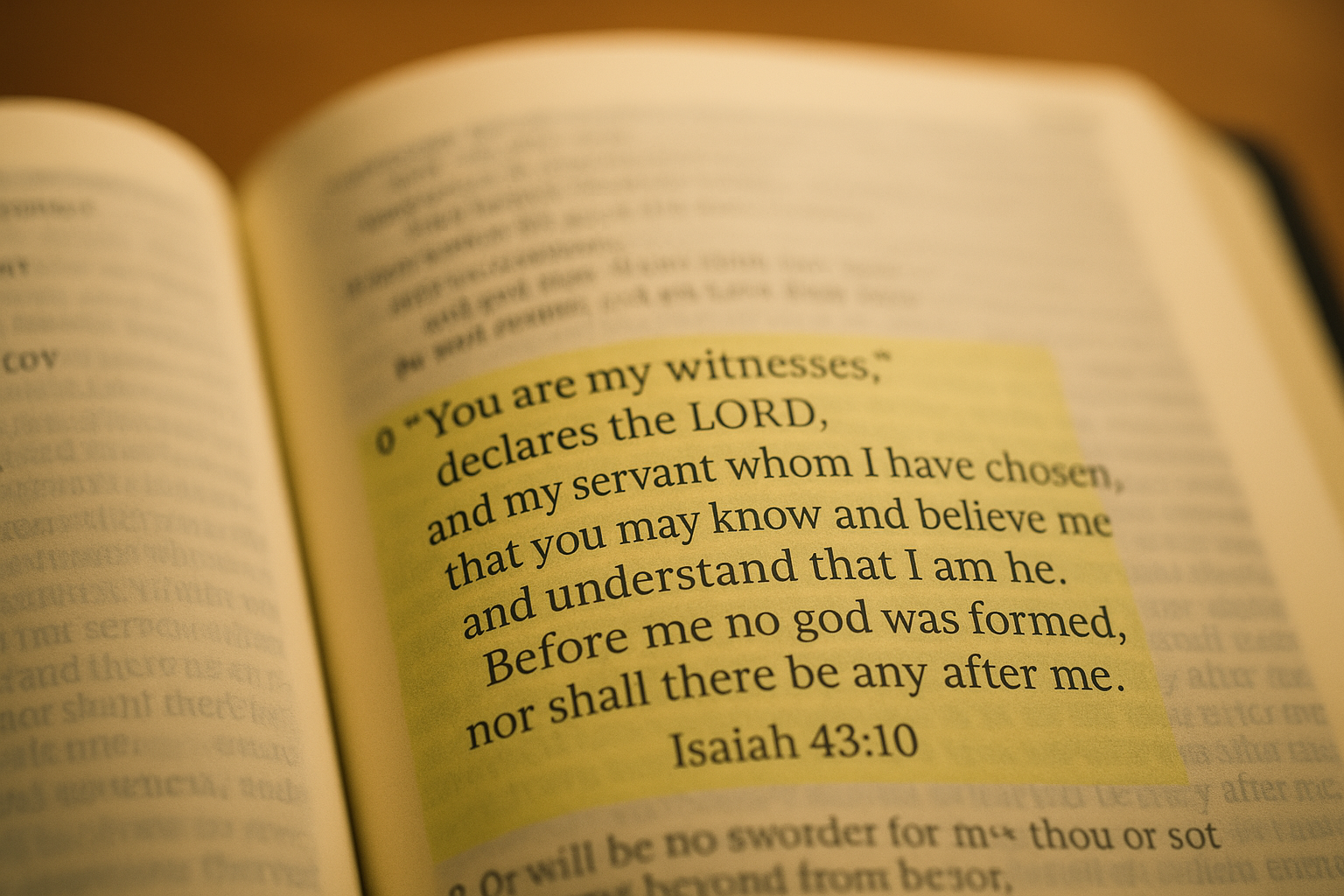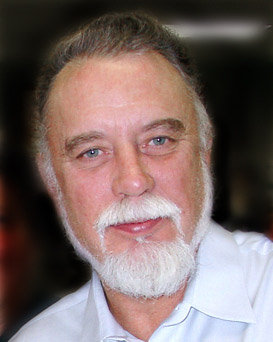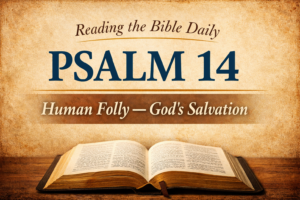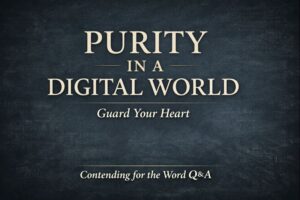⏱️ Estimated Reading Time: 9 min read
Only One True God: Refuting False Views of Elohim
Exposing the errors of Jehovah’s Witnesses, Mormonism, and modern “divine council” theories in light of Scripture.
By Don Veinot
Early on in talking with Jehovah’s Witnesses, we noticed something interesting about their view of God in their New World Translation of the Bible. While they SAY there is only one God, they have at least two separate gods in their teaching. One is Jehovah, and the other is Jesus, who they refer to as “a god.” For example, John 1:1 in their Bible reads:
In [the] beginning the Word was, and the Word was with God, and the Word was a god. (John 1:1, NWT)
They reject the doctrine of the Trinity and somehow have decided that adding the “a” solves their dilemma. Jehovah is God, and Jesus is “a god,” a lesser, small “g” deity. Although JWs would deny that they believe in two Gods, the Watchtower’s tinkering with the text creates a serious problem for their view, which shows up with a series of questions starting with “How many true Gods are there?” Their response is that there is only one God – their god they call Jehovah. Our next question is, okay, since their Bible calls Jesus “a god,” “Is Jesus a true God or a false god?” Now they have a conundrum. If there is only one true God (and there is only one true God, just to be clear) and Jesus is referred to by them as “a god,” he would have to be by definition, a false god. While they stumble around with this one, we offer up another question. If Jesus is a created god, who created him? The response is generally that Jehovah created him, which leads us to yet another question. Did Jehovah know He created another God? He is pretty emphatically clear that He did not:
“You are my witnesses,” declares the Lord, and my servant whom I have chosen, that you may know and believe me and understand that I am he. Before me no god was formed, nor shall there be any after me. (Isaiah 43:10)
That seems pretty clear, but Israel had been betraying their one true God by gathering and worshipping the false gods of the pagans around them, and God is calling them to task for their idolatry. He reiterates this:
Thus says the Lord, the King of Israel and his Redeemer, the Lord of hosts: “I am the first and I am the last; besides me there is no god. Who is like me? Let him proclaim it. (Isaiah 44:6-8)
So, if Jesus is “a god,” he is a false god! And if Big “G” Jehovah had created this small “g” god, we have to wonder why HE would have done so, when He is completely opposed to His people worshipping any God beside Him! And if Jehovah did create a “small g” god, would it not be a lie for Him to say, “Before me no god was formed, nor shall there be any after me.”?
It is not uncommon for pseudo-Christian groups and cults to believe in multiple gods. As we have shown, JWs have at least two, which is one too many according to Scripture. Mormons have millions, perhaps billions, since Mormon males and females are working their way to becoming gods and goddesses of their own planets, which they will populate and continue producing others that will become gods and goddesses of their own worlds. In addition, there is the Urantia Book, Hindus, and goddess groups like The Fellowship of Isis, Covenant of the Goddess, Circle Sanctuary, and many others. It is easy enough to evaluate their claims against the word of God and conclude that these are all false gods. But how do we respond when a popular Evangelical scholar asserts:
The God of the Old Testament was part of an assembly—a pantheon—of other gods. (Michael Heiser, The Unseen Realm)
It seems to us that God pointedly stated He is the only true God. For example, Isaiah 43:10:
“You are my witnesses,” declares the Lord, “and my servant whom I have chosen, that you may know and believe me and understand that I am he. Before me no god was formed, nor shall there be any after me.”
Therefore, with this as our baseline, our first question is the same as we would ask of any other group. Are the “other gods” Heiser touts in his “pantheon” here, true gods or false gods? If they are indeed gods, anything more than One is too many. If they are false gods, there can be and are many, as the Apostle Paul points out in 1 Corinthians 8:4-6:
we know that “an idol has no real existence,” and that “there is no God but one.” For although there may be so-called gods in heaven or on earth—as indeed there are many “gods” and many “lords”— yet for us there is one God, the Father, from whom are all things and for whom we exist, and one Lord, Jesus Christ, through whom are all things and through whom we exist.
We would suggest that Dr. Heiser missed a few important steps in making his assertion about Psalm 82, with the result that he came to a false conclusion. Words have a range of meanings which should be considered within the immediate and overall context of a document or statement. For example, the word “bark” in English could be the outer covering of a tree, or the noise of a dog or a load command of the dog’s owner. With Scripture, there is the immediate context and the other call context of God’s self-revelation. Some of the considerations are the genre of the literature (poetry like Psalms, wisdom literature like Proverbs, historical narrative like Genesis, doctrinal like Romans). The word in question which caught Heiser’s eye and put his heart in his throat is, “Elohim.” It is a Hebrew word that occurs 2,606 times in the Hebrew Scriptures. Strong’s Lexicon H430 shows how it is translated in the KJV in those 2,606 occurrences:
God (2,346x), god (244x), judge (5x), GOD (1x), goddess (2x), great (2x), mighty (2x), angels (1x), exceeding (1x), God-ward (with H4136) (1x), godly (1x).
Should Elohim be translated god, judge, God, angels, or one of the others? Whatever these Elohim in Psalm 82 are, they are “judging unjustly,” and will die like men. Dr. Thomas Howe weighs in:
The Psalmist is speaking about the failure of the elohim to do justice, and that they will ultimately die and fall, so the cry is to God to execute the very justice that the elohim have failed to do. And notice that verse 7 says, “Nevertheless like man you will die and like one of the princes you will fall.” (Ps. 82:7). … Here in Psalm 82 the verse states, “as any other man you will die, and as any other of the princes, you will fall.” So, the elohim are referred to as other men and other princes, not “other gods.”
In addition, in rejecting the traditional view on this passage, Heiser seems to skip what the passage does say and reads into the text something it does not say. Actually, two things it does not say. The second is that the elohim are ruling nations when there is nothing in the text that states or even implies this to be the case. Howe writes:
Interestingly, Psalm 82 does not claim that these elohim are appointed to rule over foreign nations. Verse 8 states, “Rise up, elohim, and execute judgment on the earth! For you own all the nations.” Heiser takes this to be a reference to the elohim, not to God. However, Heiser does not tell his reader that the statement in the final portion of the verse says “For you own all the nations.” Here, the word translated “you” is the singular personal pronoun.
It is God that owns all of the nations, not other elohim.
While rejecting the idea that the elohim are men, interjecting his narrative that the elohim are ruling nations when there is no indication in the passage this is the case Heiser builds on his narrative stating, “The Bible nowhere teaches that God appointed a council of Jewish elders to rule over foreign nations.” Again, his assertions are untrue:
… you will lend to many nations, but you will not borrow; and you will rule over many nations, but they will not rule over you (Deut. 15:6).
Judgment is coming, including judgment of the unjust judges in Psalm 82. It is fascinating that when Jesus was responding to the Jewish leadership in John 10:34-36 He pointed to Psalm 82. In his Jewish New Testament Commentary, David Stern writes:
You people are Elohim, here Greek theoi (“gods”). But in the Hebrew text of Psalm 82 the word “elohim” may be translated “God,” “gods,” “judges” or “angels.” … Yeshua’s wordplay implies a rabbinic-style kal v˒chomer argument: if humans, who do evil works as they “judge unjustly” are elohim, how much more is Yeshua, who does good works, Elohim; and if “all of you are sons of the Most High,” how much more does the description “Son of God” apply to Yeshua.
Heiser, who is now deceased, has become very popular among a certain subset of Christians. “New” and seemingly exciting truth, which Heiser himself refers to as “Supernatural” – coming from an allegedly ‘dusty old book’ seems to truly fascinate people looking for something “more.” New supernatural “knowledge,” especially coming from a source that should be trustworthy, has a very strong pull, as the number of cults and false religions will attest. Some defend Heiser’s pantheon with a response like “YHWH is an elohim, but no other elohim is YHWH,” which is little different than stating of the Olympian Pantheon that “Zeus is a god, but no other god is Zeus.” If, Yahweh is merely the most powerful among a pantheon of gods, that still leaves Heiser with far too many gods. Perhaps not as many as the Mormons, but like the JWs, even if there are as few as two, that is still one too many. And YHWH is pretty clear on this one.
“You are my witnesses,” declares the Lord, and my servant whom I have chosen, that you may know and believe me and understand that I am he. Before me no god was formed, nor shall there be any after me. (Isaiah 43:10)
Don Veinot and his wife are co-founders and president of Midwest Christian Outreach, Inc. (MCOI), a mission to cults and non-Christian religions based in Wonder Lake, IL. Don and Joy (his wife since 1970) have been involved in discernment ministry as missionaries to New Religious Movements since 1987. Don is a frequent guest on numerous radio and television broadcasts including The John Ankerberg Show as well as being a staff researcher and writer for the Midwest Christian Outreach, Inc. Journal. Additionally, Don is co-author of A Matter of Basic Principles: Bill Gothard and the Christian Life, Richard Rohr and the Enneagram Secret, A Matter of Basic Principles: Bill Gothard and His Cultish Teachings as well as contributing author of Preserving Evangelical Unity: Welcoming Diversity in Non-Essentials. Furthermore, he is the author of various research articles in the CRI Journal, PFO Quarterly Journal, Campus Life Magazine, Journal of the International Society of Christian Apologetics, Midwestern Journal of Theology, and other periodicals. Don was ordained to the ministry by West Suburban Community Church of Lombard, IL, at the Garden of Gethsemane in Jerusalem, Israel, in March of 1997. He is a charter member of the International Society of Christian Apologetics (ISCA) and is also the current President of Evangelical Ministries to New Religions (EMNR), a consortium of counter-cult/apologetic and discernment ministries from around the country. In addition, Don co-hosts a weekly webcast with Ron Henzel, Senior Researcher for MCOI, called “The Unknown Webcast,” which can be found on their YouTube channel at www.youtube.com/c/MidwestoutreachOrg.




